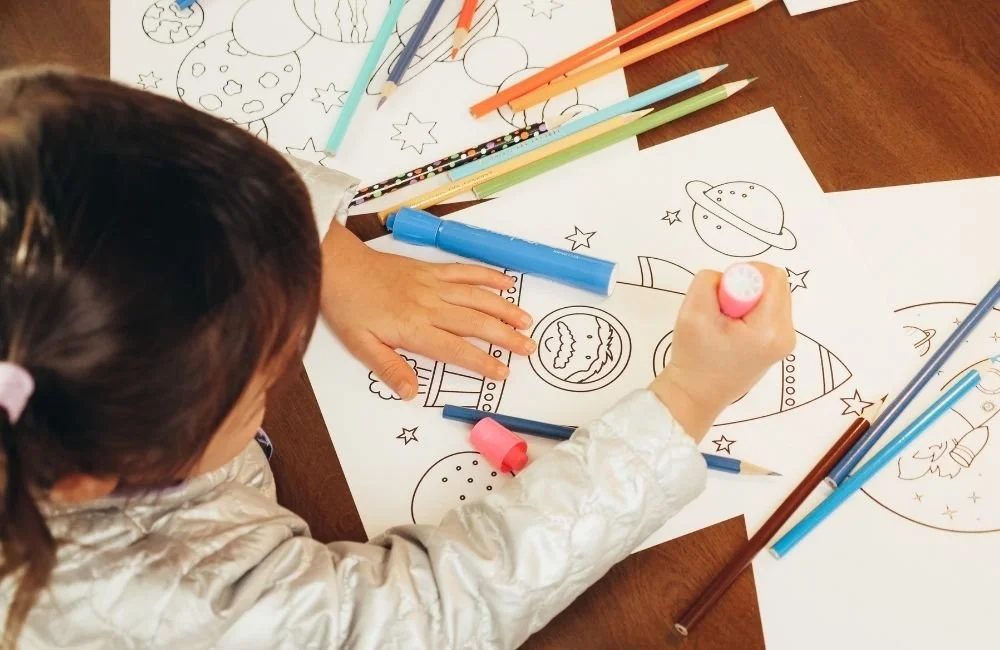Holistic Child Development: Beyond the Borders of Daycare Nursery
Holistic child development goes beyond traditional daycare, nurturing every aspect of a child's growth to help them thrive in all areas of life.
Childcare and nursery settings are more than just places for children to be looked after - they are environments where children can engage in new activities, form social connections, and develop vital life skills.
These experiences help them understand the value of communication and social interaction, setting the foundation for future learning.
Jump to:
Children who attend a supportive nursery typically find it easier to adjust when they start school. The skills and behaviours they learn from interacting with peers and their environment make transitions smoother. The earlier a child is exposed to play-based learning and social interactions, the easier it is for them to adapt and socialise in new settings - valuable life skills that will serve them for years to come.
At My Ohana, we believe in nurturing development through curiosity and self-interest, rather than following rigid educational structures. We know that creative, hands-on activities often resonate most with young children, and as a nursery, our role is not just to care for children but to support their early years’ development in a way that allows them to thrive.
What is Holistic Child Development?
A holistic approach in childcare looks at the whole child - emotionally, socially, physically, and cognitively.
It’s about recognising how a child’s experiences at nursery shape their overall growth and how the skills, interests, and values developed during their time with us extend to their home environment.
For us, a holistic approach isn’t just about focusing on one aspect of development; it’s about nurturing all areas, and this can only be achieved through strong relationships and open communication with parents. This collaboration is the cornerstone of our ethos at My Ohana.
We foster connections with parents through regular check-ins, daily conversations at drop-off and pick-up, and access to the ParentZone app, ensuring that every child’s development is supported both at nursery and at home.
When we connect with parents in this way, we can tailor our care to meet each child's unique needs, helping them build confidence, resilience, and a strong sense of self.
Why is a Holistic Approach to Childcare and Development So Important?
A holistic child development approach means allowing children to express their unique personalities and characteristics from a young age.
Before entering the more formal educational stages of school, a child’s individuality is central to their learning experience. By creating an environment where children can grow emotionally and intellectually at their own pace, we support their natural development in a safe and nurturing space.
But it’s not just the children who benefit from this approach. Parents, too, feel empowered and confident in the partnership. Knowing that their child is being well cared for, while also developing the skills they’ll need to thrive in the future, allows parents to feel at ease when leaving their child in our care.
How Do We Achieve a Holistic Setting for Children?
Achieving holistic development in a safe daycare nursery setting involves a child-led approach. Here’s how we do it at My Ohana:
Child-led activities: We allow children to make certain choices, giving them the freedom to explore their own interests and passions.
Essential life skills: Through these choices, children develop important skills like communication, negotiation, and problem-solving while interacting with their peers.
Creative self-expression: We provide endless opportunities for creativity through role-play, arts and crafts, storytelling, and more.
Strong relationships with parents: Our team, including our Childcare Extraordinaires and Central Support team, builds strong, supportive relationships with parents, ensuring children feel secure and understood.
A nurturing environment: When parents are involved and feel confident in our approach, children can fully explore their potential in a safe, nurturing space.
This structure makes it easier to read while highlighting the key elements of your holistic approach.
Interested in Holistic Child Development for Your Child?
If you’d like to learn more about our holistic approach to child development or discuss availability at one of our My Ohana nurseries, please don’t hesitate to get in touch. We’d love to hear from you!



